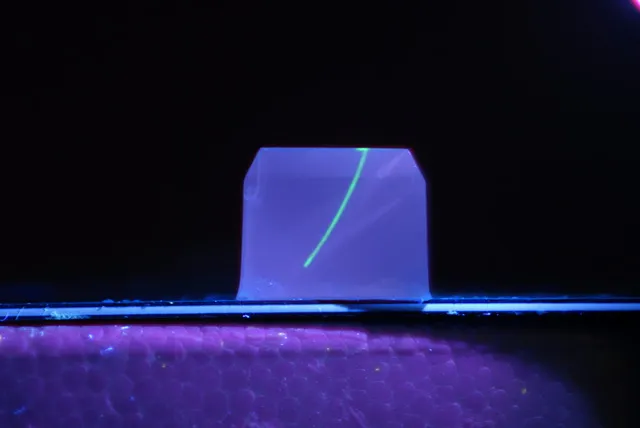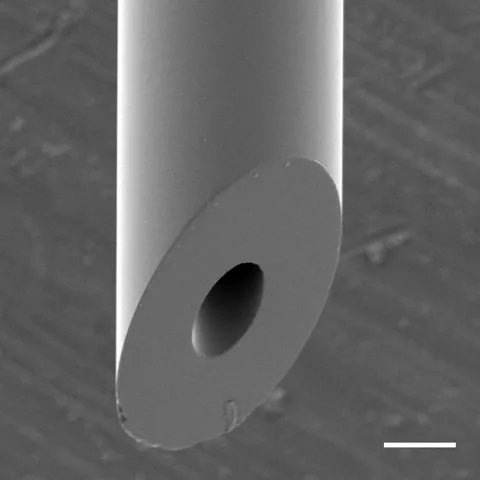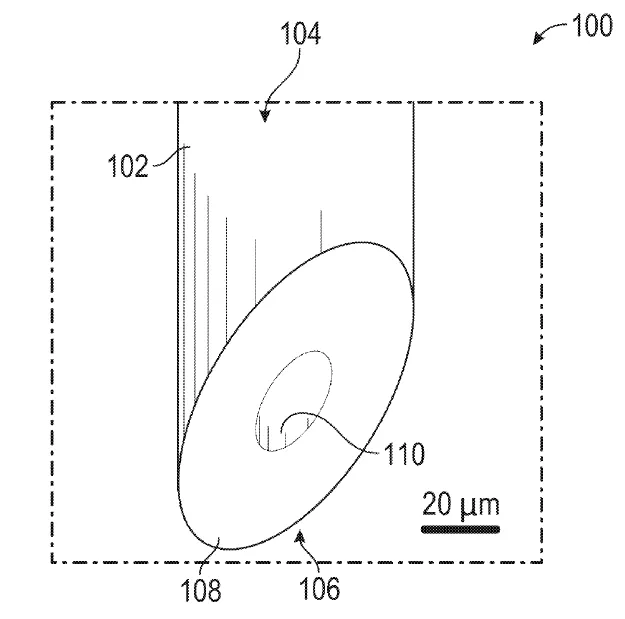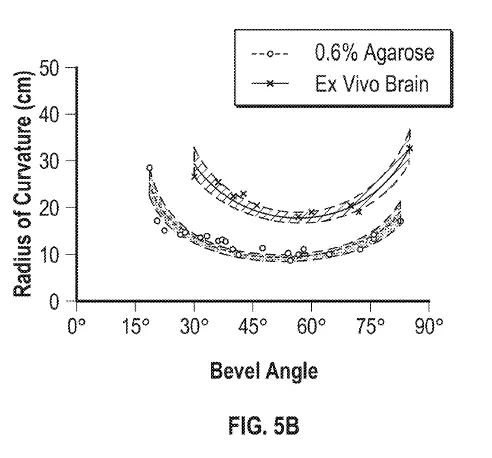Guidance of Beveled Tip Microcapillaries
This technology is a novel microcapillary design with a beveled tip to facilitate guided insertion of medical probes to internal soft tissue sites for a variety of medical interventions, including infusion and withdrawal of fluid, electrical stimulation, and photo-stimulation.
Researchers
-
medical probes and methods of use
United States of America | Published application
Figures
Technology
This invention introduces a beveled tip to the distal end portion of microcapillary medical probe used for insertion into soft tissues, such as the brain. The probe may include devices for drug delivery, fluid withdrawal, or electrical stimulation/monitoring. The geometry of the beveled tip is critical to producing the asymmetric force and deflection required for non-linear steering of the probe into the target tissue, the angle of the beveled tip correlates to the radius of curvature of the insertion path. The relationship between beveled tip angle design and trajectory allows for anatomical targeting that is highly predictable and reproducible.
This probe can be guided without real-time imaging guidance or the use of a larger shuttle to accurately reach the target site in the tissue. Rotational steering of the beveled tip can be utilized to avoid more sensitive anatomical structures, and for reaching two or more different target sites without withdrawing and reinserting the probe to minimize collateral tissue damage. The capability of beveled tip microcapillaries to follow reliable trajectories has been demonstrated by the inventors in agarose gel tissue models as well as ex vivo swine brains, indicating strong potential for translation to the clinical setting in the brain and other solid organs.
Problem Addressed
Targeted therapy to the brain through implanted devices is an attractive alternative to systemic drug administration for the treatment of neurological disorders, including epilepsy and Parkinson’s disease. The use of deep brain stimulation probes comprised of microcapillaries has become increasingly common for this application. To reduce the risk of brain trauma during procedure, conventional microcapillaries are thin, and sometimes have diameters smaller than that of a human hair. This quality makes them prone to breaking during insertion and necessitates the use of a larger guide shuttle, which obviates the potential for the microcapillaries to reduce tissue trauma and scarring. The present invention introduces a beveled tip to a microcapillary medical probe that can be steered independently to a target site in the soft tissue.
Advantages
- Reduced risk of tissue trauma or scarring during medical probe insertion
- Independent steering of a medical probe into soft tissue without the need of real-time imaging
- Reproducible curved trajectory of medical probe based on angle of beveled tip
Publications
Cotler, M. J., et al. "Steerable Microinvasive Probes for Localized Drug Delivery to Deep Tissue." Small 15 (2019): 1901459. https://doi.org/10.1002/smll.201901459.
License this technology
Interested in this technology? Connect with our experienced licensing team to initiate the process.
Sign up for technology updates
Sign up now to receive the latest updates on cutting-edge technologies and innovations.



